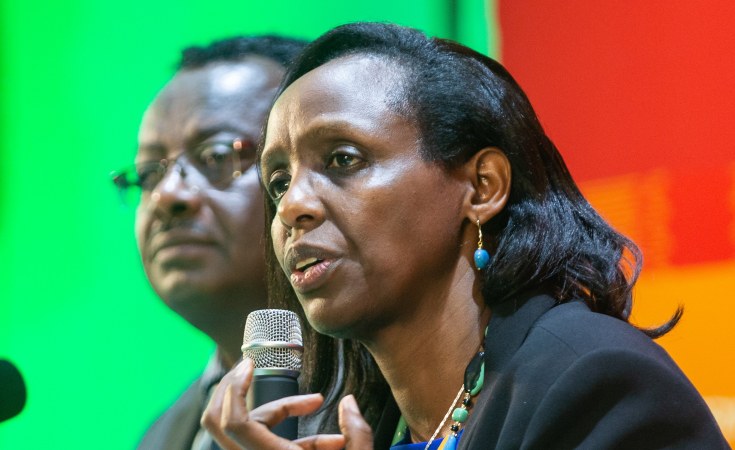AGRA President Agnes Kalibata underscored the importance of collective action in addressing the challenges at the Africa Food Systems Forum (AGRF) 2023, held in Dar es Salaam, Tanzania from September 5-8.
Read More: The Resilient Heart of Africa’s Tech Ecosystem Amidst Military Coups
In the midst of the ongoing COVID-19 pandemic, the Russia-Ukraine war, and the pressing issue of climate change, Dr. Kalibata emphasized the need for a united approach, stating that no single country or group can tackle these problems alone. She stressed the necessity of coming together as a community to engage in open dialogues about these challenges, to assess what we’re doing right and where we’re falling short, and to explore the opportunities that lie within our reach.
The conference drew over 4,000 delegates from across the globe, including more than 30 government ministers, representatives from the private sector, and members of the farming community. Dr. Kalibata emphasized that the forum provides a platform for candid and vital conversations among diverse groups of people.
AGRF 2023 placed a particular emphasis on the roles of youth and women in ensuring food production and sustainability. Dr. Kalibata highlighted the paramount importance of inclusion, especially considering the far-reaching impact of events like COVID-19, the Russia-Ukraine war, and the resulting cost of living crisis. She noted that inequalities in access to nutrition have been observed, with people getting less food for the same amount of money. This forum allows us to discuss and learn from each other, fostering a community of shared knowledge and support.
The conference aimed to facilitate agreements in agriculture, climate change, and trade within the broader context of food systems. Dr. Kalibata made it clear that transformation doesn’t solely result from conferences; it requires our commitment to allocate resources once these conferences conclude. She added that this week in Tanzania, they anticipate launching a significant program aimed at mobilizing partners and resources to bring about transformative changes, with the government of Tanzania and its partners leading the way.
Read More: What are Carbon Credits? What impact do they have on Africa’s Economy
Dr. Kalibata reassured smallholder farmers and communities that they should not feel isolated. She affirmed that the challenges posed by climate change and the cost-of-living crisis affect farmers and individuals at large. The agreements reached in meetings like this will impact them positively, and they’re here to listen and actively participate in conversations to address the challenges they confront daily.
She concluded by emphasizing the global significance of addressing climate change, noting that their mission at this conference is to ensure that these challenges, particularly the challenge of climate change, are recognized on both continental and global scales. It’s crucial to acknowledge that African farmers are bearing the brunt of climate change, yet they are not responsible for its causes.









